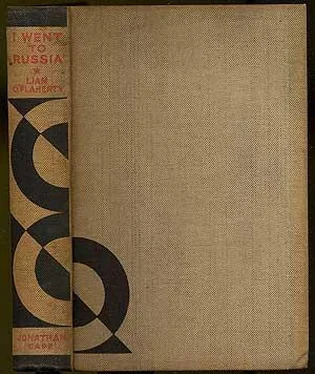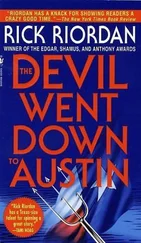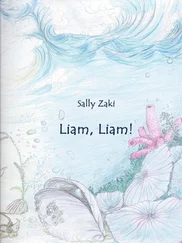Liam O'Flaherty - I Went to Russia
Здесь есть возможность читать онлайн «Liam O'Flaherty - I Went to Russia» весь текст электронной книги совершенно бесплатно (целиком полную версию без сокращений). В некоторых случаях можно слушать аудио, скачать через торрент в формате fb2 и присутствует краткое содержание. Город: London, Год выпуска: 2011, ISBN: 2011, Издательство: Bloomsbury Publishing, Жанр: Публицистика, на английском языке. Описание произведения, (предисловие) а так же отзывы посетителей доступны на портале библиотеки ЛибКат.
- Название:I Went to Russia
- Автор:
- Издательство:Bloomsbury Publishing
- Жанр:
- Год:2011
- Город:London
- ISBN:9781448205592
- Рейтинг книги:5 / 5. Голосов: 1
-
Избранное:Добавить в избранное
- Отзывы:
-
Ваша оценка:
- 100
- 1
- 2
- 3
- 4
- 5
I Went to Russia: краткое содержание, описание и аннотация
Предлагаем к чтению аннотацию, описание, краткое содержание или предисловие (зависит от того, что написал сам автор книги «I Went to Russia»). Если вы не нашли необходимую информацию о книге — напишите в комментариях, мы постараемся отыскать её.
I Went to Russia — читать онлайн бесплатно полную книгу (весь текст) целиком
Ниже представлен текст книги, разбитый по страницам. Система сохранения места последней прочитанной страницы, позволяет с удобством читать онлайн бесплатно книгу «I Went to Russia», без необходимости каждый раз заново искать на чём Вы остановились. Поставьте закладку, и сможете в любой момент перейти на страницу, на которой закончили чтение.
Интервал:
Закладка:
In conversation with this Englishwoman, my distraught nerves forced me to become as violent in support of the Russians as I had been prone to disparage their efforts in conversation with Kashkin.
‘What’s the good of it all?’ she cried. ‘This Five Year Plan won’t make the world any more interesting. It will just give the Russians motor cars and newspapers and chewing gum, just as people have in America. Their ambition is to create a new America in Russia, only worse. There’s nothing new here.’
She really terrified me; for although I contradicted everything she said, I felt that she spoke the truth. And although I was trying to persuade myself that I had more in common with the Russian Bolsheviks than with her, my reason told me that I was just as convinced as she was that acquisitive lust rather than idealism was the driving power behind Russia’s energy. I left her house in a state of acute depression. I got rid of Kashkin and swore that I was finished with Russian intellectuals. They merely irritated me without teaching me anything of what I wanted to know.
And yet . . . what did I want to know? Was there anything to know? Had anything dealing with social relationships been discovered here fundamentally different from what had already been discovered in Europe and America? For another fortnight I wandered about trying to discover it and failed. Nowhere was I able to find a logical attitude towards the universe as one finds in France, the calm judgment and the sound social morality which distinguishes the English, the love of labour and the meticulous exactitude which have made the Germans such unerring craftsmen and designers. Everywhere I found the intellectual wreck of the old Russian grandeur, a nervous, pulsating, worried, unstable mass of human beings, merely held together by terror of the enemies that surrounded them and by the masses that pushed them from the rear, by hunger, by lack of all the necessities of life, by a mystical frenzy which envisaged the conquest of the world.
I had come like a fool to write Lies About Russia, foolishly believing that wise men had gone before me, bringing back true tales of a land where everything was new. Both those who denounced the Soviets and those who praised them had come back with tales that everything was new and different. Yet I found everything the same; merely a difference produced by climate and locality and racial habits.
They tried to persuade me to visit the south, the Ukraine, the Caucasus, the new cities that were springing up on the Socialist plan, the collective farms. But I stayed in Moscow, for I am more concerned with spiritual results than with material causes. Innovations do not begin in the villages, or in the provinces, where they are certain to meet with greater opposition than in the capital, to which all the intelligent flock in order to be near the centre of culture. In the capital I must stay, in order to understand the Soviet mind, in order to understand the lives and the aspirations of the proletarian masses, upon whom this Revolution is based.
Towards that end, I hid myself from all my intellectual friends and went among the masses, as the Communists say; but as I did not speak the language of the country, I was severely handicapped. I learned the utter idiocy of those ladies and gentlemen, who attempted to write books, giving an exact description of the institutions, the life and the ambitions of countries as vast as Russia, after a nodding acquaintance; like the foreign gentleman in Pickwick Papers. In a country as completely foreign as Russia, the mind of the visiting stranger is so confused by the mass of impressions that continually pour in upon it that it is incapable of seeing anything in a normal light. However, I avoided examining or judging individual things. I sought to get a general impression of the general life, and in that manner I succeeded in acclimatising myself to such an extent that I felt comparatively at home. I felt bored, excited, discontented, eager for change, enthusiastic, depressed, argumentative, ferocious, bigoted, fanatical, hungry, bitten by bed bugs, convinced that Europe was preparing war against me, convinced that a world revolution was imminent, that the Soviets were going to fail, that the Five Year Plan was going to be a magnificent success, that it would end in disaster, that socialism was going to be produced in a few years, that it would never materialise, that there were spies at every street corner, that I might be taken out at any moment and shot, that I might take out somebody at any moment and shoot him. ... In a word, I assumed the psychology of the Russian masses. I went to bed wherever I found myself at three o’clock in the morning. I slept in old monasteries, in communal lodging houses, in new flats on the American plan, in rooms of old houses that had once been clubs, palaces and town houses of the gentry. I met old nuns earning their living gathering firewood, peeling potatoes in kitchens, begging at street corners. I met ex-priests that were lousy and degenerate, also begging. I met couples that were divorced and still lived together owing to the housing shortage. I met men with two or more wives and women with two or more husbands. I swam naked in the river with women who wore bathing suits. I rowed on the river with soldiers, sailors, male and female factory workers. I played the accordion at dances in private rooms and at factory outings. I went on a binge with an ex-prince, who had become a journalist, with a popular Soviet novelist who had been a Cossack, with a Kulak, with cab drivers, with odds and ends of humanity to be met in public houses and at street corners. I stood about kiosks drinking lemonade. I queued up for cigarettes for hours. I hung around the market and mingled with the gypsies, peasants, pick-pockets, speculators. I hung around the hotels at night and mingled with foreign capitalists and engineers and gawky Americans who were making scientific examination for their University theses of the Russian theatre, the Russian school system, the Russian prison system. I picked up girls in the streets, by the same method as in other countries. I kept cab drivers for days at a time, in the same manner as Irishmen used to do in Dublin before the war. I went to the intellectual cinemas, with Russians who shed tears, sang, cheered and shouted ‘Down with the bourgeois assassins’ when Lenin or the other Communist hierarchs were shown on the screen. I went to common cinemas with the masses, where Charles Chaplin, Fatty Arbuckle, cowboys and wild west criminals sent the masses into hysterics with delight and little children kept cheering when the hero rescued the heroine, or threatened to wreck the screen when the villain had the hero in a corner, exactly as they do in the slum cinemas of Dublin, London, New York, Shanghai, Jerusalem or Addis Abbaba. I went to the Circus where the masses roared applause for the acrobats, the sword swallowers and the clowns that delight audiences in the other cities I have mentioned. There they drank light beer and ate buns between the acts, as they do at Collins’ or the Holborn Empire in London. I went once to an intellectual theatre and fell asleep during a marvellous play executed by Georgians. I went to a trotting race meeting and lost five races, before I received the information that they were all squared, as in European countries, where racing is not properly controlled. I attended football matches and played football on waste plots with workmen who were enjoying their fifth day holiday. I forgot the day of the week and the day of the month and only stumbled by chance one Sunday into a church where the faithful were hearing Mass in the old style. Another day I visited the atheistic museum, where young people were taught in the new style that Mass was a delusion and a humbug. I frequented another church that had been turned into a library of foreign literature and periodicals, in order to keep in touch with English racing and cricket. Sometimes I had breakfast at four in the afternoon and lunch at three o’clock in the morning. I ate sturgeon, caviare, boeuf Strogonov and borsch. I got drunk on vodka, Napareouli, beer and French brandy. I did physical jerks and Russian dances with bands of workers in the public parks. I went to the Zoo and to a wedding and to a funeral. In other words, I lived completely the life of a knockabout and enjoyed myself and had practically the same experiences as a knock-about in London, Dublin, New York, Jerusalem or Addis Abbaba. I found that humanity in Russia was essentially the same as in any other country, that people had the same wants, the same ambitions, the same virtues and the same vices. The same things and the same types irritated me as at home. I was enthused by the same splendid types, generous, simple, courteous amusing, courageous, industrious, honest, trust- worthy types as one finds at home and in every other country in the world. I found also mean, scavenging, envious scoundrels. I found the same insufferable arrogance in the young.
Читать дальшеИнтервал:
Закладка:
Похожие книги на «I Went to Russia»
Представляем Вашему вниманию похожие книги на «I Went to Russia» списком для выбора. Мы отобрали схожую по названию и смыслу литературу в надежде предоставить читателям больше вариантов отыскать новые, интересные, ещё непрочитанные произведения.
Обсуждение, отзывы о книге «I Went to Russia» и просто собственные мнения читателей. Оставьте ваши комментарии, напишите, что Вы думаете о произведении, его смысле или главных героях. Укажите что конкретно понравилось, а что нет, и почему Вы так считаете.












